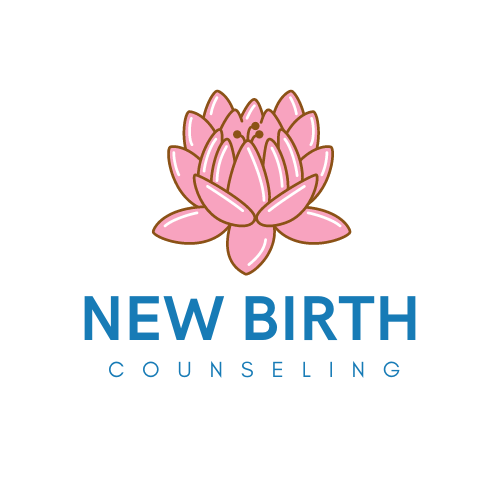Toxic Relationships: Recognizing the Signs and Finding the Courage to Seek Change
Navigating the complexities of relationships is an inevitable aspect of the human experience. While healthy connections can be a source of joy and support, toxic relationships can have a detrimental impact on one's mental and emotional well-being. In this article, we'll explore the signs of toxic relationships, their various manifestations, and how to summon the courage to seek positive change.
II. Identifying Signs of a Toxic Relationship
Behavioral Red Flags
Toxic relationships often manifest through controlling behaviors and manipulation. Partners may attempt to dictate your actions, isolate you from loved ones, or undermine your confidence. Recognizing these patterns is crucial for breaking the cycle.
Emotional Warning Signs
Constant negativity, emotional exhaustion, and isolation are common indicators of toxicity. If you find yourself feeling drained, undervalued, or cut off from your support network, it's essential to assess the health of your relationship.
Physical and Mental Health Indicators
Toxic relationships can take a toll on your well-being. Increased stress, anxiety, and a decline in mental health may be signals that it's time for a change. In extreme cases, toxicity can escalate to physical harm or abuse, further emphasizing the urgency of recognizing these signs.
III. Types of Toxic Relationships
Romantic Relationships
Toxicity in romantic relationships may manifest as jealousy, control, or emotional abuse. It's crucial to discern whether the love you're receiving is uplifting or causing harm.
Friendships
Friendships can turn toxic when they become one-sided or manipulative. Healthy friendships are built on mutual respect and support, and recognizing toxic elements is vital for maintaining your well-being.
Family Dynamics
Toxicity within families can be challenging to navigate due to inherent bonds. Identifying dysfunctional patterns and setting boundaries is essential for preserving your mental health.
Workplace Toxicity
Toxic relationships aren't limited to personal connections; they can also infiltrate professional environments. Recognizing toxic workplace dynamics is essential for maintaining a healthy work-life balance.
IV. The Impact of Toxic Relationships on Mental Health
Anxiety and Depression
Toxic relationships often contribute to heightened levels of anxiety and depression. Understanding the correlation between your emotional state and the health of your relationships is the first step toward positive change.
Low Self-Esteem and Self-Worth
Consistent criticism and lack of support can erode self-esteem. Rebuilding self-worth requires acknowledging the toxic dynamics and seeking support to break free from negative cycles.
Post-Traumatic Stress Disorder (PTSD)
In severe cases, toxic relationships can lead to PTSD. Seeking professional help is crucial for overcoming trauma and rebuilding a healthy mental state.
Breaking the Cycle of Toxic Behavior
Recognizing and addressing toxic behavior patterns is vital for breaking the cycle. This involves acknowledging the problem, setting boundaries, and, when necessary, seeking professional guidance.
V. Overcoming Fear and Finding the Courage to Seek Change
Acknowledging the Problem
Acknowledging that a relationship is toxic is the first step toward positive change. This requires self-reflection and an honest assessment of the impact the relationship is having on your well-being.
Building a Support System
Establishing a support system is crucial for those looking to break free from toxic relationships. Friends, family, and professionals can provide guidance, encouragement, and a sense of community.
Setting Boundaries
Setting clear and healthy boundaries is essential for protecting yourself from toxic influences. This involves communicating your needs and expectations, and being prepared to distance yourself from harmful dynamics.
Seeking Professional Help
Professional counseling can be a valuable resource for individuals seeking to navigate and overcome toxic relationships. Trained therapists can provide guidance, support, and strategies for breaking free from harmful patterns.
VI. Empowering Yourself to Break Free
Developing Self-Awareness
Self-awareness is a powerful tool for recognizing and addressing toxic relationships. Understanding your own needs, values, and boundaries is essential for cultivating healthy connections.
Cultivating Self-Love and Self-Care
Prioritizing self-love and self-care is crucial for overcoming the impact of toxic relationships. This involves activities and practices that nourish your physical, emotional, and mental well-being.
Finding Strength in Vulnerability
Acknowledging vulnerability is not a weakness but a source of strength. It takes courage to confront toxic relationships and make the necessary changes for personal growth.
Building a Life Beyond Toxic Relationships
Breaking free from toxic relationships opens the door to personal growth and positive change. Building a life beyond toxicity involves pursuing passions, cultivating healthy connections, and fostering a positive mindset.
VII. New Birth Counseling and How We Can Help
As you embark on the journey to break free from toxic relationships, New Birth Counseling is here to support you. Our experienced counselors specialize in helping individuals navigate challenging relationship dynamics, providing guidance, empathy, and actionable strategies for positive change.
VIII. Call to Action: Book Your Free Consultation
Take the first step towards a healthier, happier life by booking a free consultation with New Birth Counseling. Visit www.newbirthcounseling.com/get-started to schedule your confidential session. Our team is dedicated to helping you achieve the positive changes you deserve.
IX. Conclusion
In conclusion, recognizing the signs of toxic relationships and finding the courage to seek change is a transformative journey toward personal growth and well-being. By understanding the various manifestations of toxicity, acknowledging the impact on mental health, and taking proactive steps to break free, individuals can empower themselves to build a life filled with healthy connections and positive experiences. Remember, you deserve relationships that uplift and nurture your well-being.
